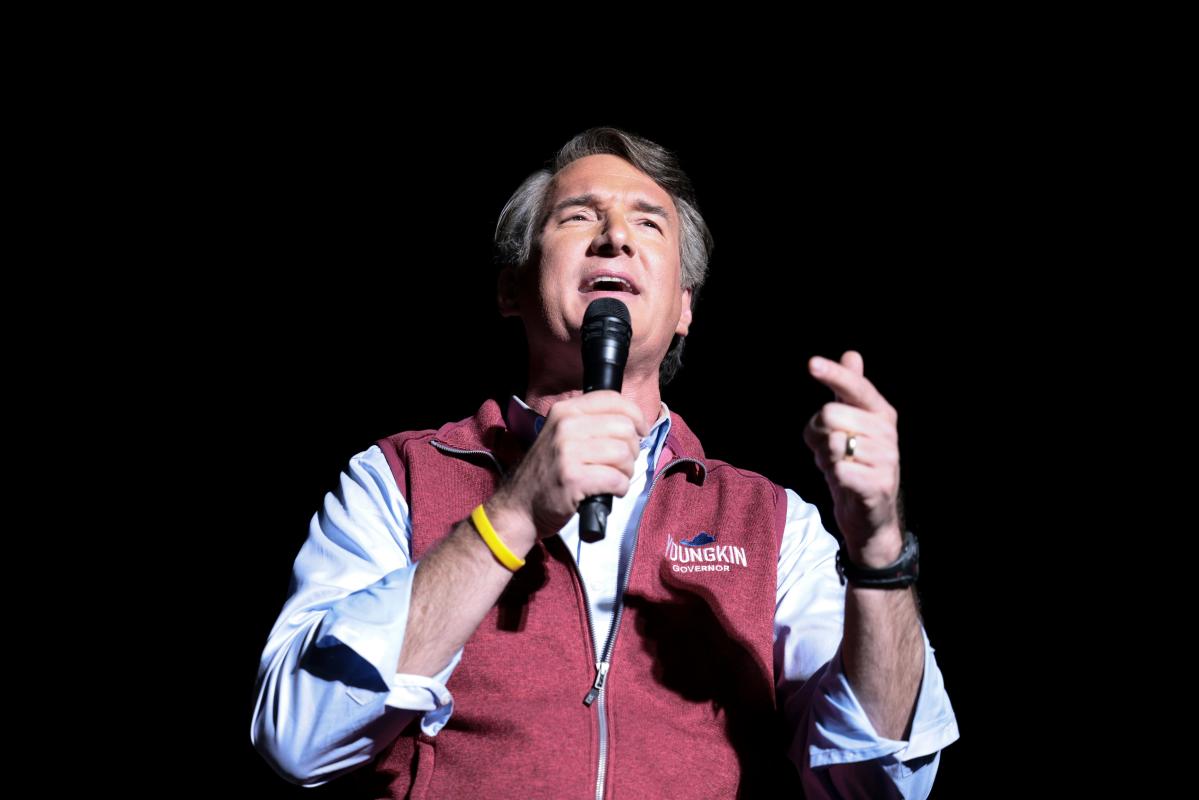Virginia might be the country’s modern bellwether, with their constituents having a near-perfect track record for picking recent national election winners. But before national elections can officially begin, voters and activists from both parties in the state say they’re focused on first winning this year.
They say their attention is on November 2023, when senators and representatives from the Virginia State Senate and House of Delegates will all be up for reelection for the first time in four years, because they know what the results could mean for 2024.
Even Virginia Gov. Glenn Youngkin told USA TODAY he is “incredibly focused” on his state, despite rumors and some megadonors’ dreams of a presidential bid from the political newcomer.
Youngkin and other Virginia Republicans hope to hold their majority in the state House and flip their Senate red, much like the national GOP aspires to keep the U.S. House of Representatives and take back the majority in the Senate.
Good or bad, the outcomes in Virginia in less than two months will impact Youngkin’s national image and may influence a decision to enter the race for president.
Two years ago, Youngkin captured national attention when his upset win in the 2021 governor’s race was seen as President Joe Biden’s first report card after his election in 2020. Both Democrats and Republicans know how the odd-year elections in Virginia can influence political momentum heading into 2024, and they’re investing accordingly.
National dollars pour into the Old Dominion state
The Democratic National Committee recently invested $1.2 million in the state party, “at President (Joe) Biden’s direction,” according to a local news outlet.
“We are proud to make these unprecedented investments in Virginia and across the country that will not only help Democrats win in 2023, but will build on and expand the infrastructure we need to reelect President Biden and Vice President (Kamala) Harris next year,” DNC Chair Jaime Harrison wrote in a statement to the outlet.
At $1.5 million, the DNC’s total investment in the state is 15 times what they spent on Virginia in 2019, the last time members of both chambers were all up for reelection.
Virginia Republicans have also received their share of out-of-state money. Billionaire Thomas Peterffy, a former Ron DeSantis backer, wrote his second $1 million check to Youngkin’s Spirit of Virginia political action committee in August.
While Democrats in the state Senate and House of Delegates combined have outraised their GOP counterparts by about $5 million, according to the Virginia Public Access Project, Youngkin’s PAC broke fundraising records, thanks in large part to megadonors like Peterffy.
Because Virginia is one of the few states that hold elections in odd years, national interest is “customary and understandable,” said Denny Daugherty, chairman of the Prince William County Republican Committee.
“The difference is that this year there is more national interest on the Republican side, due to the governor’s active involvement,” Daughtery told USA TODAY.
Youngkin for president? Democrats worry about the governor’s next step
The national donations reflect, in part, growing attention around Youngkin from both sides of the aisle, said Heidi Dragneff, who helped founded the COVA Coalition, an organization that advocates for progressive women in coastal Virginia.
Her co-founder Carrie Short said she is sure the governor will enter the race for president after state elections conclude.
“I mean, it’s pretty obvious,” Short said. “If he delivers a victory here this fall, he will absolutely throw his hat in. Absolutely. We have no doubt about.”
Republicans’ success in Virginia would buy Youngkin “credibility in the national sphere,” Short said. Adding to his advantage, Dragneff said, is Youngkin’s more approachable nature compared to other candidates.
“He is basically DeSantis in a sweater vest and nicer packaging,” Dragneff said. “He’s more soft spoken, he doesn’t seem to get irate … kind of like the soccer dad type. So, he’s more friendly. And I know people will vote based on how they feel about a person, rather than the policies.”
Voters there have told USA TODAY that despite the more appealing toned-down persona, they don’t believe their governor is ready to make a White House run.
“He’s kind of just a big unknown,” Curt Seright, a 41-year-old minister in Blacksburg, Virginia, said last month. “And unknowns sometimes can look pretty attractive when everybody else’s knowns are in the headlines.”
Virginia law prevents anyone from serving consecutive terms as governor, meaning Youngkin cannot run again in the 2025 gubernatorial election. Because of this rule, the office of Virginia governor is often “a stepping stone” for a presidential or Senate campaign, Dragneff said.
In a hypothetical 2024 Senate matchup between Youngkin and incumbent Sen. Tim Kaine, D-Va., polls show Kaine having a 2- to 5-point lead over the governor.
Sign of success: Youngkin-backed candidates sweep the primaries
Youngkin is off to a good start so far: All six candidates he endorsed ahead of the June primaries won the Republican nomination.
But of those six, four face competitive general elections, according to the Virginia Public Access Project, including House candidate Lee Peters and Senate candidate Tara Durant, both running in districts around Fredericksburg.
Just one Youngkin-backed candidate, Buddy Fowler, is an incumbent. His House district just north of the state capital of Richmond is rated “strong Republican.” Voters there have elected Republicans across levels of office in recent years, including former President Donald Trump in 2016 and Youngkin in 2021.
Bill Woolf’s Senate race in northern Virginia, where Daughtery and his committee are, is the only one in this cohort to lean left. Daughtery said another candidate in the Prince William County area, John Stirrup, has benefitted from Youngkin’s endorsement.
“Governor Youngkin’s support has rallied voters to support John Stirrup and as importantly, raised funds to communicate John’s message,” Daughtery said.
This article originally appeared on USA TODAY: Why Virginia’s 2023 elections could predict odds for November 2024







